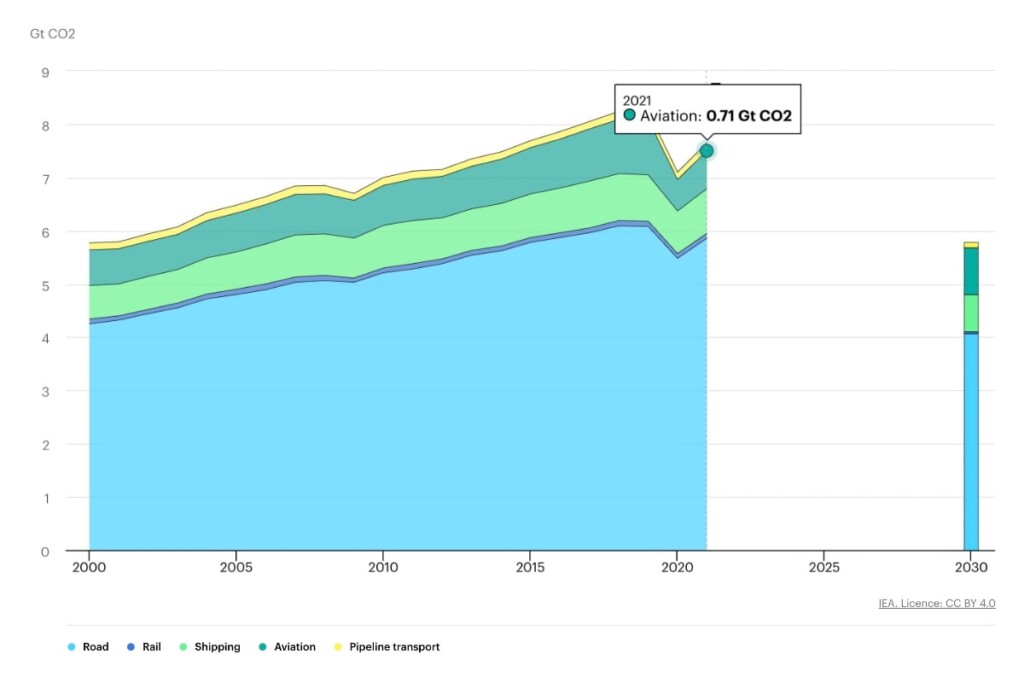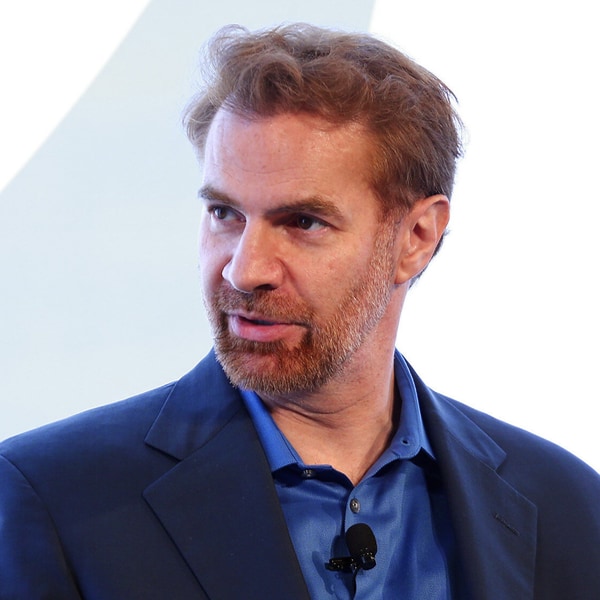
Green Travel: Flying High on Hydrogen
So long, flight shame: ZeroAvia founder Val Miftakhov explains how aviation can become clean, thanks to a new kind of engine powering zero-emission airplanes.
It has no color, no taste, no smell – but as the most abundant element on earth which can also store energy, hydrogen has long excited scientists and engineers in search of an alternative to fossil fuels.
Car makers have been developing prototypes of hydrogen cars for decades. But the industry, at least for now, is shifting to electric vehicles.
For planes, however, batteries are not always practical, as they add a lot of weight. Instead, “there is an expectation that hydrogen and fuel cells could be the most competitive options for medium-haul flights that might require prohibitive numbers of batteries to electrify by other means”, the International Energy Agency notes in a new report.
Along with Airbus, a startup called ZeroAvia has been pioneering zero-emission airplanes of this kind. Founded just five years ago, in early 2018, the company has collected $140 million in funding and received some 1,500 preorders from airlines including British Airways and United Airlines.

The big gap: This chart by the International Energy Agency (IEA) illustrates carbon emissions in the transport sector – and how far away all industries are from reaching the 2030 targets.
To CEO and founder Val Miftakhov, the demand does not come as a surprise – because the necessity is clear. “We really need this kind of zero-emission aviation to succeed”, he told the audience at DLD23.
While aviation, with around 2% of global CO2 emissions, may appear to be a small contributor to climate change, other factors come into play as well.
Two thirds of the climate impact in aviation stem from high-altitude effects, such as particulate emissions and high-temperature water vapor, Miftakhov pointed out. The conclusion, for him, is clear: “We need to go from combustion to electrified propulsion.”
In an interview with DLD, Miftakhov explains why hydrogen has many advantages over other fuels, can be safer than kerosene – and is likely to make flying not just greener but also cheaper.
Why do you see hydrogen as the best way to make air travel green?
Consensus is growing that hydrogen technology is the most viable option to reduce aviation’s climate impact in the long-term. Batteries are too heavy and face costly replacement cycles. Sustainable Aviation Fuels do not tackle the problem of non-carbon emissions and are difficult to scale.
But hydrogen fuel cells are different. The sole emission is water vapor and these engines are between two and three times more energy efficient than their combustion counterparts. Combining fuel cells with electric propulsion (hydrogen-electric) can deliver the electrification that virtually eliminates climate change and air quality impacts. Crucially, the efficiency will mean lower operating costs, so it is attractive to airlines too.
Many people probably think of Zeppelins and fiery accidents when it comes to flying with hydrogen. What’s the difference with your technology?
Hydrogen actually has the potential to be safer than conventional jet fuels. Because hydrogen is much lighter than air, it quickly dissipates when it is released, allowing for relatively rapid dispersal of the fuel in case of a leak. It also has a higher ignition temperature than jet kerosene. Compressed hydrogen tank integrity is superior to conventional liquid fuel tanks and hydrogen has a lower radiant heat than conventional gasoline. In fact, gasoline is two to three times more flammable than hydrogen when in the air and hydrogen requires 18 times more oxygen concentration to ignite than gasoline.
How big a difference can you make in the transition to more sustainable aviation?
ZeroAvia is leading the transition to zero-emission aviation. We currently hold the record for the largest capacity hydrogen fuel-cell powered aircraft in the world and we’re on track for commercial flights of up to 300 miles in 2025. This won’t be limited to new aircraft either – our hydrogen-electric engines will be retrofitted to existing fleets, too.
We will start with 9 to 19 seat aircraft, but by the end of the decade plan to be powering up to 90 seat regional jets, and then tackling the narrowbody category, and thus the majority of emissions in the sector. In fact, we’re partnering with some of the world’s largest airlines, including American Airlines and British Airways, to supercharge the speed of the industry’s response to the climate crisis.
Revisit DLD23
With more than 200 speakers, DLD Munich 2023 was an enormously inspiring event, coving topics from AI and robotics to leadership, investing, politics, society and sustainable farming. Please visit our dedicated DLD23 page to see highlights and videos sorted by topic.
Will people have to accept higher ticket prices to fly green?
In the long-term we actually expect it to cost less to fly green. The cost of green hydrogen is expected to drop by 50% by 2030 and continue to fall, making it considerably cheaper than jet fuel in the future which will eventually be reflected in ticket prices. Hydrogen-electric engines will also have substantially lower maintenance costs as they are less intensive systems and require less major overhaul events than combustion engines. And, again, fuel cells are two to three times more energy efficient.
How do you see mobility in general change beyond now?
There are those who call for us to stop flying. I disagree. Flight brings cultures and economies together and it makes the world a safer, more understanding place. We are a naturally forward-looking society and restricting the free movement of people is not a viable option. But we have to face the reality: aviation is one of the world’s fastest-growing contributors to climate change. Addressing its impact is central to our mission at ZeroAvia and key to keeping people in the air.

Ready for Takeoff
By loading the video you agree to the privacy policy of Youtube.
You are currently viewing a placeholder content from YouTube. To access the actual content, click the button below. Please note that doing so will share data with third-party providers.
More Information







